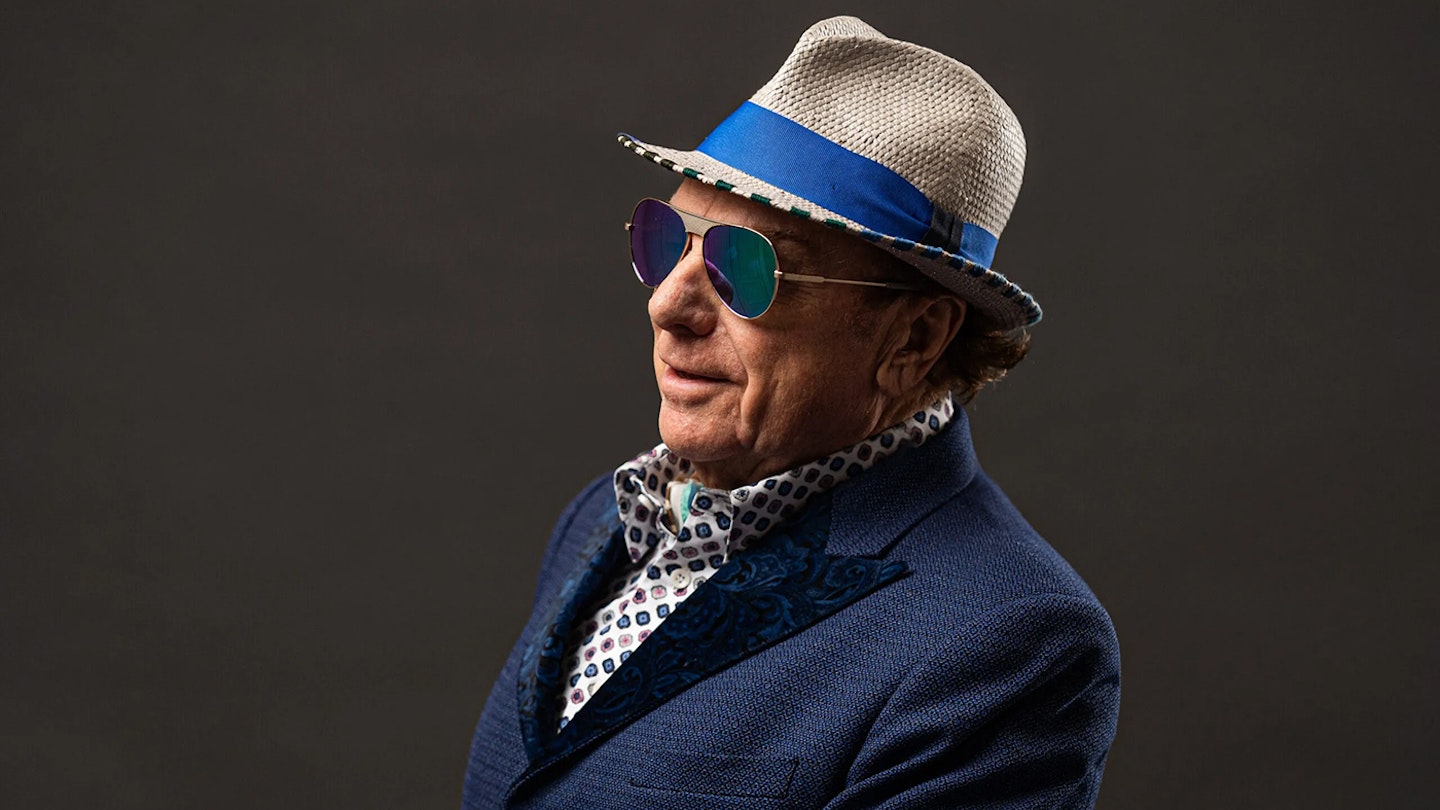Portrait: Bradley Quinn
Van Morrison’s latest album, Moving On Skiffle, sees the 77-year old singer revisiting his skiffle band roots, playing some of the songs he first tackled as Belfast schoolboy. Last month, MOJO sat Morrison down with skiffle scholar Billy Bragg to talk about the huge importance of skiffle in the history of British music, Morrison’s early musical journeys and more. In this extract fromMOJO’s exclusive feature, the pair discuss the seismic impact of Lonnie Donegan on Morrison’s generation of soon-to-be stars, his early skiffle outfits and why singing Jerry Lee Lewis to a bunch of “hard men down the docks” made Van realise he was on to something…
Billy Bragg: You were an 11-year-old schoolboy when Lonnie Donegan's Rock Island Line hit the charts. How did you get access to this new guitar-based music?
Van Morrison: The guitar wasn’t really that popular until Donegan and Chas McDevitt and these guys came along. I connected with that energy, watching them on TV. There was a programme on every night after dinner with Cliff Michelmore [ie. Highlight – an early magazine-type show that followed the 7pm news on BBC TV]. They had a folk singer every night. It would either be Rory McEwen, Rory with Alex McEwen, Cy Grant, Steve Benbow or Robin Hall and Jimmie MacGregor. I was really into what Rory was doing because my father had the Lead Belly records and Rory threw in a couple of Lead Belly songs. So that was really relatable. Also Steve Benbow played a cross section of Irish folk songs and English folk songs. [Legendary US song collector] Alan Lomax had a radio programme then in the UK, every Sunday I think it was, and I had his American Folk Guitar book from which I was learning to play in the Carter Family style while all this was going on. So originally I wanted to be a folk singer, playing American, Irish, English folk.
BB: Could you find places to play your music?
VM: There was an advertisement on one of the kids’ programmes. They were having auditions for any kids who wanted to be on TV, so one of my parents wrote in to the BBC and I got an audition at the local BBC TV in Belfast. I was still in school, 14 maybe 15. I did a folk song called Hummingbird. I never heard a thing! One day my father brought home this 78 of Lonnie Donegan singing Rock Island Line. He said, ‘You’ve been listening to this Lead Belly stuff – you need to hear this.’ Soon as I heard the record, I immediately identified with it – I knew exactly what it was. That’s when the thought occurred to me that, rather than being a solo folk singer, I could do this music with a band. So it was like Lonnie just opened this door.
BB: So when it came to forming a skiffle band with your school pals, how aware of this music were they?
VM: Well kids were listening to Saturday Skiffle Club on the BBC and Donegan was always on, as well as Chas McDevitt, The Vipers. They were hearing this stuff on the radio so everybody kinda knew what skiffle was. My band was just two kids from my street and one from a street over, we all went to the same school.
BB: Were you able to see any bands playing this kind of music in Northern Ireland? Did you go to concerts at all?
VM: No, there was no club circuit, just local bands at the Strand Cinema. That’s where the skiffle groups played, all amateur, just school kids like myself. I got a gig with my skiffle band, The Sputniks, at another picture house called The Willowfield, playing between films during the Saturday matinee for kids.
BB: What sort of material were you playing?
VM: I got hold of Donegan’s Skiffle Session EP by then, which had [The Ballad Of] Jesse James on it and a couple of other things. Then he released Dead Or Alive, Bring A Little Water, Sylvie. So mainly all the Donegan stuff. Lonnie was getting his material from the record library attached to the American Embassy in Grosvenor Square – Lead Belly recordings with Woody and Cisco [Houston] and Sonny Terry. And this material wasn’t released in the UK at that time, so it wasn’t in my father’s record collection.
BB: Skiffle kind of came and went in the space of 18 months. Do you have any thoughts on why it dissipated so quickly?
VM: My friends didn’t really want to carry on, but for me, when I was getting ready to leave school it was like, “Well, what do you want to do?” I had a few short-term jobs, but I ended up on the dole. In those days, you had to go to a thing called bureau school before you could sign on, so I’m in the class down by the docks and there’s all these hard men from the docks in there. The teacher goes round the class and asks each of us, “What do you want to do?” So I said, “I wanna sing,” so he says, “Go ahead and sing, then.” So I start beating out a rhythm on the desk and I sing the Jerry Lee Lewis version of Don’t Be Cruel. Everybody claps and the teacher says very good so I think I’m away! This is what I’m gonna do. When I heard all those hard-looking men going, “Yeah! Yeah!”, it was all the validation I needed.
BECOME A MOJO MEMBER for instant access to the latest MOJO and receive every new issue on your smart phone or tablet to listen to or read from as little as 99p. Enjoy access to an archive of previous issues, exclusive MOJO Filter emails with the key tracks you need to hear each week, plus a host of member-only rewards and discounts.
